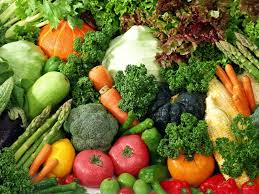Most of us take the clotting of our blood for granted, but few of us think about how the things we eat support our blood health. Vitamin K plays a key role in making sure your blood clots properly. Here’s what you need to know.
Why does my body need vitamin K?
When you get a cut or a scrape, you’ve probably noticed that the area starts bleeding, but eventually clots over to form a scab. There are a number of factors in the blood that allow this clotting process to occur at the right time in the right place. The liver uses vitamin K as part of the process of making these factors. That makes vitamin K vitally important in how well your blood clots. It’s also why some blood thinners, like warfarin, block vitamin K’s ability to help the liver make these clotting factors.
What foods contain vitamin K?
Our body gets vitamin K from two places. First, some of the foods we eat contain vitamin K. These include green leafy vegetables like kale, spinach or green leaf lettuce, vegetables like Brussels sprouts, broccoli or cabbage, and fish, meat and eggs in small amounts. These all contain a form of vitamin K called K1 that is the most active form. Second, the bacteria that live in our gut also make some vitamin K in a form called K2. This form is slightly less active than K1, but still helps to keep our blood clotting normally.
What happens when I don’t get enough vitamin K?
Since vitamin K plays an essential role in blood clotting, low levels of vitamin K prevent the blood from forming clots the way it’s supposed to. This normally starts out with easy bruising or small blood spots under the skin that can be scattered over the body. As the deficiency gets worse, blood can start showing up around the gums in the mouth or in the urine.
Who’s at risk of deficiency?
Newborn children don’t have the needed bacteria growing in their gut when they’re born and are at high risk of developing vitamin K deficiency. This is why all newborns are given a shot of vitamin K soon after birth, which normally keeps them healthy until their bacteria settle in. People who have trouble absorbing nutrients from food, like those with inflammatory bowel disease or Celiac disease, may also be at risk. Some people on very restricted diets may also be deficient. However, vitamin K deficiency is uncommon in health.
Source: The Dr. OZ Show
N.H.Khider

